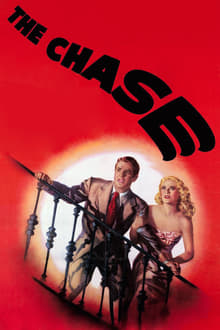
Have you ever been afraid? Really afraid?
The Chase is directed by Arthur Ripley and adapted to screenplay by Philip Yordan from the novel The Black Path of Fear written by Cornell Woolrich. It stars Robert Cummings, Steve Cochran, Michèle Morgan, Peter Lorre and Jack Holt. Music is by Michel Michelet and cinematography comes from Frank F. Planer. Plot finds Cummings as World War II veteran Chuck Scott, drifting and skint, he finds a wallet and returns it to the owner. The owner is one Eddie Roman (Cochran), an apparently wealthy and thriving business man who repays Chuck's honesty by giving him a job as a chauffeur. Nothing from here on in will ever be the same....
The Chase is one of those films that fell in to the public domain, got a cult following in spite of the number of bad prints out there, and now arguably deserves a place on the must see list of film noir enthusiasts. Bad prints aside, The Chase deals in oppressive atmosphere and lives in the void caught between a dream and a nightmare. Ripley (Thunder Road 1958) crafts his whole film in a dream state, keeping it mostly nocturnal, he and photographer Franz Planer thrive on Woolrich's premise and use slow pacing and shadow play to smoother the characters. It feels stifling, odd even, but with a couple of tricks up his sleeve, Ripley garners maximum impact by disorientating the viewer for the wonderfully absurd ending. Some may call out cheat, others are likely to enjoy its Wellesian feel, either way it's certainly a film that can't be called dull.
Cummings is fine as the good guy suddenly finding his world shifting sideways in a blur of pills, sleep and perfume, while Morgan registers nicely - even if ultimately she's underused and often her character is just there to make a romantic point. Cochran, in only his second year of acting, is a dominating and frightening force as the handsome and oily Roman. It's a menacing portrayal of a character who slaps his women around and literally will stop at nothing to get his way. But even Cochran is trumped by yet another weasel turn from Lorre, standing on the side of his boss spitting flem as well as sarcastic quips, Lorre alone is enough to seek the film out for a viewing. Good secondary support comes from Jack Holt in an important small role.
It doesn't push any boundaries or hold up as being hugely influential in the film noir cycle. But it's a relevant piece of work in that cycle, and certainly recommended to those interested in dream like oppression. 7/10